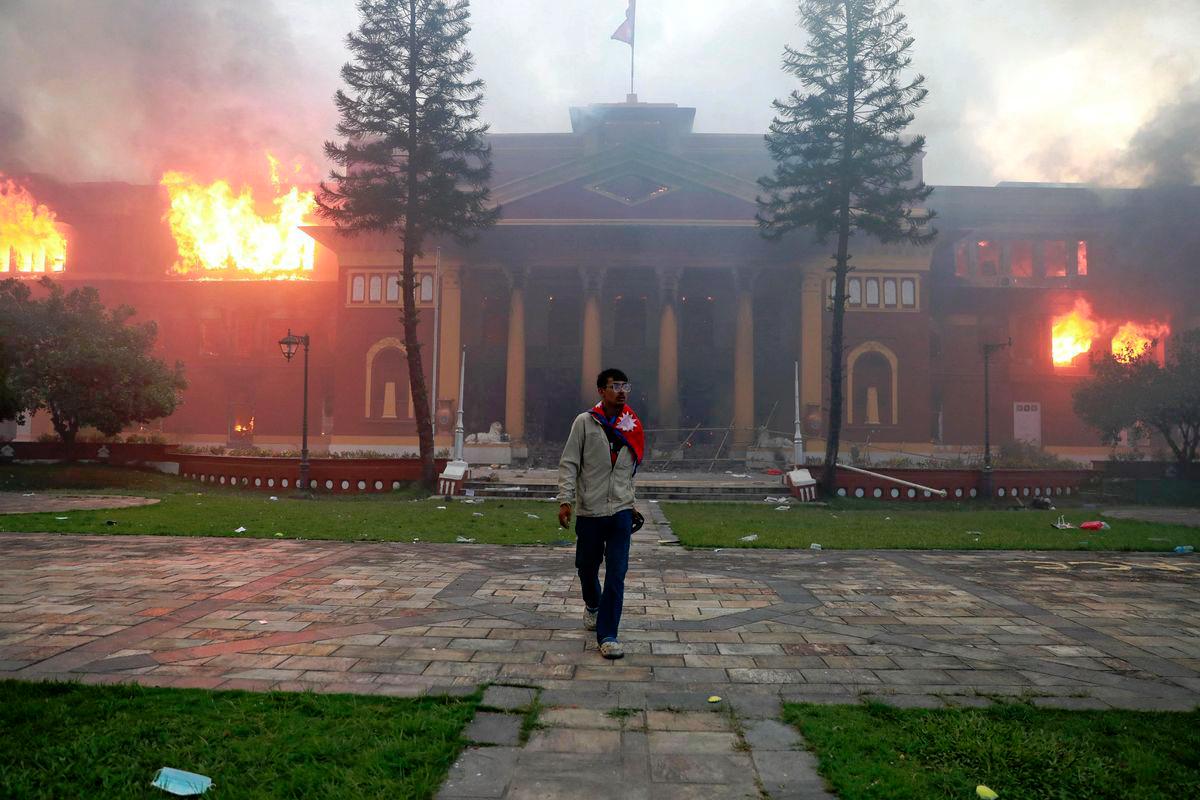KATHMANDU: Nepali soldiers patrolled the streets of Kathmandu on Wednesday to restore order after protesters set parliament ablaze and forced the prime minister to resign in the worst violence to hit the Himalayan nation in two decades.
Protests began Monday in the Nepali capital against the government’s ban on social media and over corruption but escalated into nationwide rage with government buildings set on fire after a deadly crackdown claimed at least 19 lives.
The rapid descent into chaos shocked many, and Nepal’s military warned against activities that could lead the country of 30 million people into unrest and instability.
Smouldering plumes of smoke rose from government buildings, politicians’ residences, supermarkets and other structures targeted by protesters, an AFP reporter said Wednesday.
Streets were littered with carcasses of burnt vehicles and tyres.
One soldier inspecting cars at a makeshift street checkpoint confirmed the army’s presence across all locations to maintain quiet, though he could not be named as he was not authorised to speak to reporters.
Gangs attacked and set fire to the house of KP Sharma Oli on Tuesday, the 73-year-old, four-time prime minister and leader of the Communist Party.
He later resigned to allow steps towards a political solution, though his current whereabouts remain unknown.
Nepali Army chief General Ashok Raj Sigdel appealed for talks in a video message issued late Tuesday, urging all protest groups to call it off and engage in dialogue for a peaceful national resolution.
The International Crisis Group described the situation as a major inflection point in the country’s uneasy experience with democratic rule.
United Nations Secretary-General Antonio Guterres urged restraint to avoid further escalation of violence, according to spokesman Stephane Dujarric’s statement.
Neighbouring India’s Prime Minister Narendra Modi stated that Nepal’s stability, peace and prosperity are of utmost importance to his nation.
Constitutional lawyer Dipendra Jha told AFP that protesters, trusted leaders and the army should collaborate to establish a caretaker government for the way forward.
Crisis Group analyst Ashish Pradhan echoed that sentiment, emphasising the need for a swift transitional arrangement involving figures who retain credibility with Nepalis, especially the country’s youth.
Government statistics show people aged 15-40 make up nearly 43% of the population, while unemployment hovers around 10% and GDP per capita stands at just $1,447 according to World Bank data.
The government blocked several social media sites including Facebook, YouTube and X on Friday after cutting access to 26 unregistered platforms.
Videos contrasting ordinary Nepalis’ struggles with politicians’ children flaunting luxury goods and expensive vacations have since gone viral on TikTok, which was not blocked. – AFP









